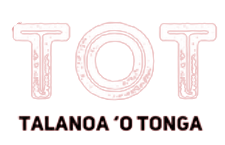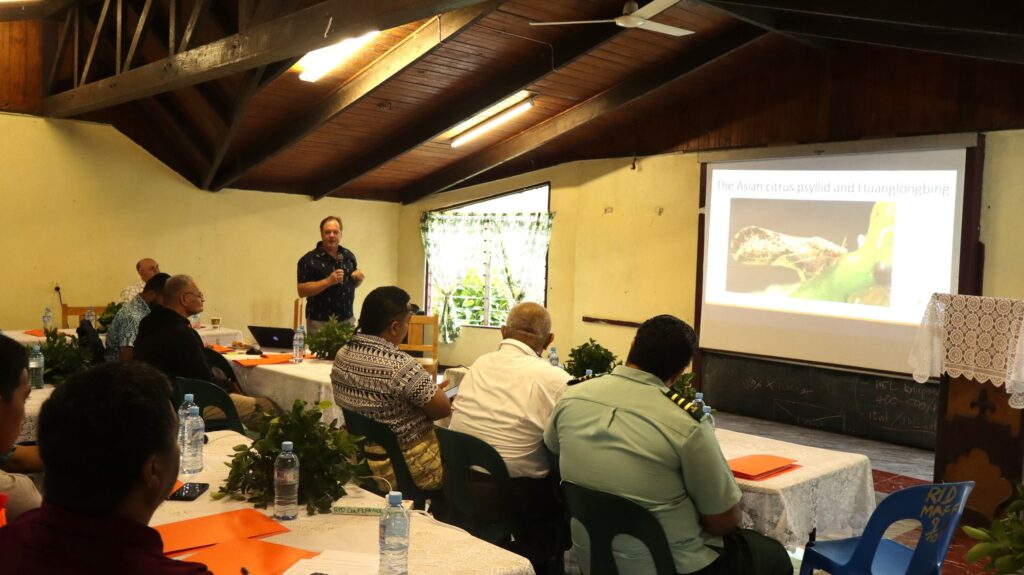Workshops in Tonga and Samoa are being held as part of the ACIAR project “Responding to Emerging Pest and Disease Threats to Horticulture in the Pacific Islands” to address the potential threat posed by the Asian Citrus Psyllid (ACP). This pest, recently introduced to the South Pacific Islands, is capable of transmitting Huanglongbing (HLB), a disease that devastates citrus trees like oranges, lemons, and limes.
In Tonga, the August 5th workshop at the Ministry of Agriculture Food and Forest research centre marks the first awareness session on citrus pest and disease threats. While ACP and HLB have not yet reached Tonga, the training aims to establish proactive measures to protect the nation’s emerging citrus industry.

Originally from Asia, ACP and HLB have spread across Brazil and the USA over the past two decades. Florida, the USA’s largest citrus producer, has lost 75% of its production due to HLB since 2005. California, where ACP arrived in 2008, has managed to control the disease’s spread through a combination of early detection and biological control methods.
Dr. David Morgan from California’s Department of Food and Agriculture lead the workshops, focusing on using Tamarixia radiata, a natural predator of ACP, to manage the pest. This method has reduced ACP populations in urban California by 75%.




